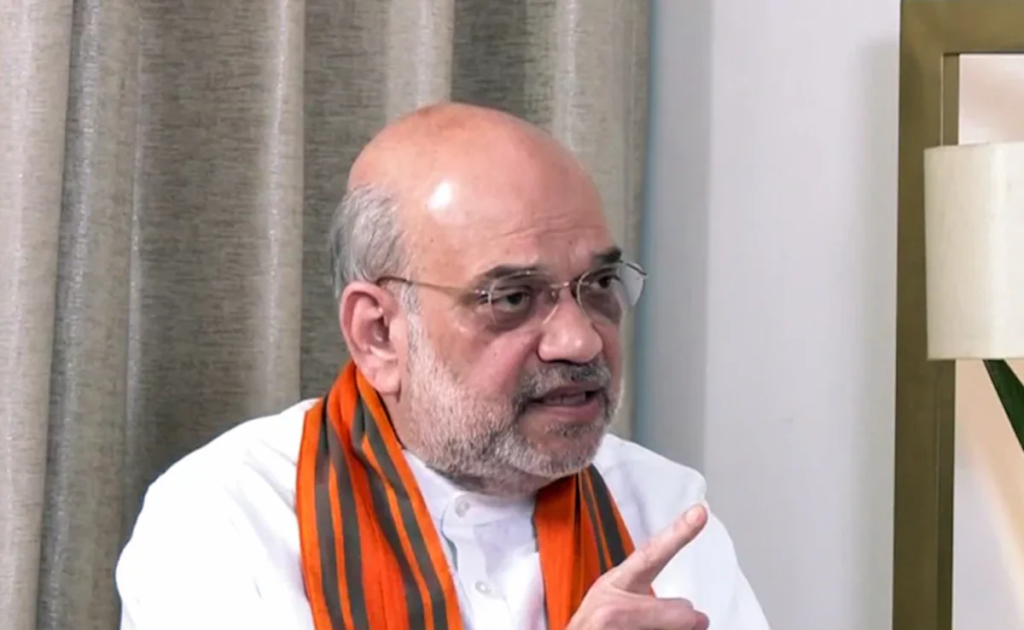Centre Working To Remove
Centre-New Delhi: Union Home Minister Amit Shah has emphasized that the central government is diligently working to bridge the trust deficit between the Meitei and Kuki communities in Manipur. The objective is to achieve lasting peace in the region, and Shah assured that this process will be expedited with the utmost priority following the Lok Sabha elections.
Centre-In an interview with PTI on Saturday, Shah clarified that the ongoing clashes between the Meitei and Kuki communities are fundamentally ethnic in nature. This intrinsic characteristic, he noted, means that the conflict cannot be resolved through force or typical measures used to address riots or terrorism.
Centre-“This is not an issue of riots or terrorism. This is an issue of ethnic violence. It can’t be resolved through force. This is ethnic violence,” Shah explained, emphasizing the unique nature of the problem and the need for a nuanced approach to reconciliation and peace-building.
Centre-The Nature of the Conflict
Centre-The conflict between the Meitei and Kuki communities has deep historical and ethnic roots, making it a complex issue that requires sensitive handling. Ethnic violence, unlike other forms of conflict, involves deeply ingrained mistrust and historical grievances that cannot be simply erased by law enforcement actions or military interventions.

Centre-Government’s Approach
Centre-Understanding the unique nature of the ethnic strife, the government is focusing on strategies that foster dialogue, mutual understanding, and trust-building. This includes engaging with community leaders, facilitating open dialogues, and implementing confidence-building measures that address the underlying issues.
Centre-Amit Shah’s statement underscores the government’s commitment to a long-term solution, which involves addressing the root causes of the mistrust and animosity between the two communities. The process, he reiterated, will be a priority for the government, particularly after the completion of the Lok Sabha elections, indicating a phased and strategic approach to the peace-building efforts.
Centre-Historical Context
The Meitei and Kuki communities have a long history of coexistence, but also of conflict, rooted in issues such as land rights, political representation, and cultural differences. Over the years, these issues have been exacerbated by economic disparities, competition for resources, and external influences, leading to periodic outbreaks of violence.
Challenges Ahead
Addressing such a deeply rooted conflict poses significant challenges. The government needs to navigate the delicate balance between enforcing law and order and promoting reconciliation. This involves not only addressing immediate grievances but also implementing long-term policies that promote economic development, social integration, and political inclusion for both communities.
Future Prospects
The government’s focus on removing the trust deficit is a positive step towards lasting peace in Manipur. By prioritizing dialogue and mutual understanding, there is a potential for sustainable peace and development in the region. However, this process requires sustained effort, patience, and the active participation of both communities to rebuild trust and forge a shared future.
Conclusion
Union Home Minister Amit Shah’s comments highlight the central government’s strategic approach to addressing the ethnic violence in Manipur. By focusing on trust-building and reconciliation, the government aims to create a foundation for lasting peace in the region. The emphasis on a post-election expedited process indicates a committed and phased approach to resolving this complex issue.
In summary, the resolution of the Meitei-Kuki conflict in Manipur requires a multifaceted approach that goes beyond force and addresses the deeper ethnic and historical roots of the violence. The government’s commitment to removing the trust deficit and fostering dialogue and understanding is crucial for achieving lasting peace in the region.
